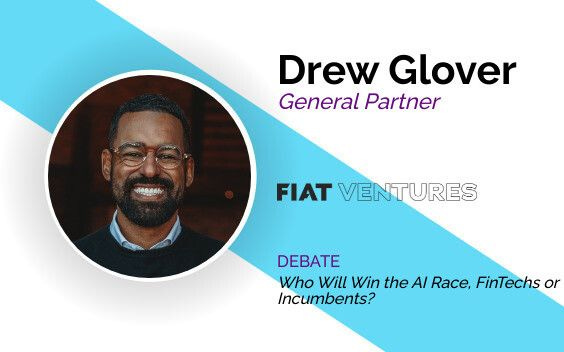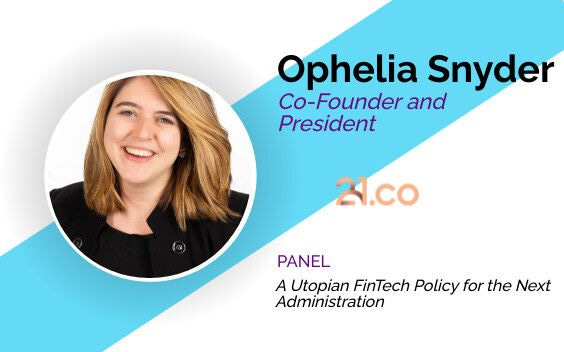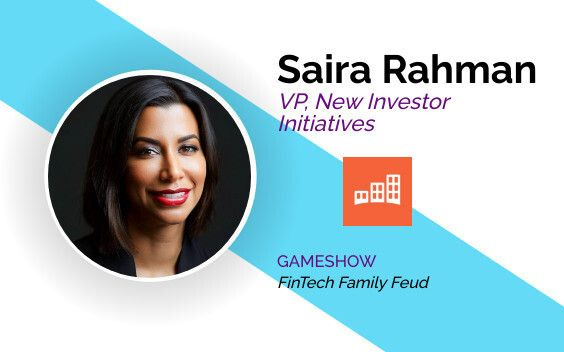Navigating the Solo-Founder Storm
Empire Startups contributor Carmelle Cadet gets personal when detailing her journey toward building for resilience.
I can’t remember what I expected, but 2023 was nothing like what I thought it would be. Forget the fundraising landscape, when people called it a “reset”, it sure felt like it.
According to the numbers, 2017-2021 was an exhilarating period for tech founders, investors and public markets. Investments skyrocketed and customers benefited from the lower cost of capital that allowed “freemiums” in lieu of paying market price for tech solutions.
Source: Pitchbook
Then came 2022 and 2023, when founders were reminded investment money can actually stop flowing!
In the realm of entrepreneurship, we know the path to success is seldom a smooth one and relies on the combination of vision, talent and capital to execute. But for solo founders, I believe the challenge of going from investment to building a successful company magnifies the need for sheer resilience.
The Genesis
I’d argue every entrepreneurial journey begins with a spark, an idea that ignites passion and fuels the desire to create something meaningful and even impactful. Yet, is that enough? If the good days masked and numbed the need to be resilient, the bad times will surely bring you humility, and out right defeat.
My resilience comes from knowing my “why”. Migrating to the U.S. was a bit of a culture shock when it came to money and financial services. People had a lot of it, talked about it a lot and spent a lot of it…. All the time. As a child, the foreign exchange rate to the dollar was a metric that told us if we had more or less money on any given day, however banking services were grossly unavailable to most.
As of 2023, banking penetration in Haiti is around 25%, and although there are many reasons for that, one of them is that the infrastructure that created access and delivery of financial services was not designed for inclusion, resilience or sustainability.
In 2007, far away in Kenya, some had pioneered the concept of moving money across telecommunication infrastructures, by using the minutes as a bridge to transfer money. This is today called M-Pesa, the widely used mobile money solution in Kenya.
In 2019, I decided to launch EMTECH with a very simple idea: If I can put cash on blockchain, we can have financial inclusion by design. Today, this is often referred to as “Central Bank Digital Currency” (CBDC).
The Challenge
The tough calls started from day 1. In fact, I didn’t plan to be a solo founder, however, my co-founder had a change of heart about jumping in the startup world. I had to decide very quickly (given that I had already quit my job) what to do?! Do I go back? Do I forget the venture and look for another job? Could I do this on my own?
In my 10 years at IBM, I had the luxury to work with products with multi-million dollar budgets — aka “funding” — that led tremendous growth; even in difficult years. I worked with large teams that could bring a product from R&D to global markets in months.
Being a founder meant stepping into a whole different world, taking all of my savings to make payroll until clients came in.
I debated whether VC funding was the way to go for a while. Did I want to give up equity and take what I call “investor money risk”? Could I build a big company without it?
At that time in 2019, it seemed like everyone was raising a lot of money. It also seemed easy. I decided to join an accelerator when COVID hit, and since then have raised over $10M in phases, although it never felt like it. Then came 2022, when funding seemed to have disappeared overnight.
My journey taught me early that I had to watch every dollar and make it do more every day. I could never afford to spend at will, although it seemed many were doing so.
The ultimate challenge is to build a successful business that can withstand the tough times. Between COVID, FTX, the funding declines of 2022 and the banking crisis of 2023, resilience was — and still is — absolutely necessary.
The Setbacks
In the startup world, rejections and setbacks are as common as milestones. You learn to view rejection not as a roadblock, but as a stepping stone. From investor pitches to customers not buying, each rejection became an opportunity to refine the pitch, improve the product, and fortify the vision.
When it comes to fundraising, my chances of raising capital are not high. I had to learn the world, the language and the culture of fundraising. I made mistakes along the way, one step at a time. Don’t get me wrong, I am proud to have been able to raise capital to build a solution for something I deeply care about. However, along the way I learned there is such a thing as talking to the wrong investors too early, and assessing how much to raise against the impact on the cap table.
My favorite advice has been, “If it’s not a yes, it’s a no, keep it moving.”
As a former software CFO, I will tell you that software needs investment; and most times, it’s before you ever get a customer to pay you. This requires sizable capital in tech industries, where profitability is not achievable in the early years.
Nonetheless, it should be clear that generating more revenue than what you spend allows a team to focus on how to grow sustainably and be ready for opportunities. So, what kept me going? My family tells me I’m relentless. I call it having faith… in myself, the mission and my team.
In practical terms, here are a few things that worked as well:
Adapting to Market Dynamics
On the customer front:
When I started EMTECH, I wanted to help central banks adopt blockchain for cash. The idea of using this modern technology to do things the way I thought would be highly beneficial. Instead, I was receiving requests for training and tech solutions that helped understand FinTech solutions.
Come to think of it, that was our best detour.
We decided to rethink the concept of the “regulatory sandbox” and built a “Digital Regulatory Sandbox (™)” that is now fully patented. It allowed us to address an immediate problem and win each customer faster.
On the fundraising front:
So imagine, here I am building solutions for regulators to make finance in Web3 safer, and when Terra Luna and FTX collaposed, we went from from a $15M commitment to $500K overnight . We had to reset our thinking, focus on figuring out the chicken in our “chicken and egg” problem, and ended up closing $4M in 2023. I became determined to get to profitability sooner than I originally thought. I needed to. For my peace of mind, our customers, our team and our investors.
Building a Support System
Resilience is not forged in isolation. As a solo founder, you quickly discover the importance of building a support system. This network extended beyond professional connections to include mentors, advisors, and fellow entrepreneurs. For me, my husband, my mother and my girlfriends have been unconditionally supportive and allowed me to be strong during the tough times. On my own, meditation and prayers have given me the will and fortitude to “walk through walls” as I like to say.
It’s a tough road to navigate alone, but I’ve been humbled by the sacrifice my team has been willing to make. It truly matters to have colleagues who can navigate the tough times with you. Get them early!
Learning resilience in a tough market dynamic is a testament to the indomitable spirit of entrepreneurship. It's a story of facing adversity head-on, adapting to change, building a strong support system, and embracing the roller coaster with unwavering determination. In the world of startups, where uncertainty is the only certainty, resilience emerges as the secret weapon that transforms challenges into opportunities and dreams into reality.
However, understanding the core of business success in financial terms is key to surviving the tough times. Investments are great, but they don’t automatically make businesses successful.
It’s up to us to find that financial freedom for our company too.
To my fellow solo founders, we can do this!
—
Carmelle Cadet, Founder & CEO of EMTECH, Empire Startups Contributor
Empire Startups Contributors are a community of experts providing unique perspectives and insights on the latest in FinTech. Our model is is merit-based and does not offer monetary compensation.
🎪 2024 Empire FinTech Conference
Don’t miss out on grabbing your 2024 Empire FinTech Conference ticket before before our next price jump. 👇
Need further convincing? Our agenda is now live, along with another week of speaker sneak peeks:
🎟 Featured FinTech Events
NEW YORK
OTHER CITIES
📣 LAST CALL: 2024 FINANCIAL WELLNESS PITCH DAY
Applications close this Friday (February 16th) to pitch at our 2024 Financial Wellness Pitch Day, in partnership with the AgeTech Collaborative™ from AARP. The winning pitch not only receives $10,000 but gets the opportunity to pitch on the Empire FinTech stage later that week.
If your email client clips some of this newsletter, click below to see the rest.🗞🎧 The latest news in FinTech.
Reads
🔥 The 50 Hottest Fintech Startups | Forbes
Despite the industry’s funding woes, some startups–particularly those serving others business—are thriving.
🏈 Super Bowl 2024: The fintech firms that spent $7 million on a 30 second ad | Finextra
Fintech accounted for 3.6% of the ads shown during the 2024 Super Bowl’s commercial breaks, a dip in comparison to the number of firms promoting in 2023 and 2022.
🥵 Earned Wage Access Debate Set to Heat Up Between FinTechs and Regulators | PYMNTS
The debate is sharpening as a number of providers are coming to the forefront in offering EWA to various firms and platforms.
🏆 How JPMorgan Chase defends its position as the nation's top acquirer | American Banker
JP Morgan is building a larger stack of payments tech. Will that be enough to ward off fintech rivals?
💏 Score is a new dating app for people with good to excellent credit | TechCrunch
There is a new dating app just in time for Valentine’s Day, but there’s a catch.
Listens
🗣 A Special Series: The OGs of Fintech | The This Week in Fintech Podcast
After four months of recording episodes for the Fintech OG series, it's here! We are kicking it off with Matt Harris of Bain Capital Ventures and Steve McLaughlin of FT Partners, which, if you're in Fintech, I don't even think these guys need an introduction.
👀 Fintech Recap: BaaS Enforcement Action Fallout | Fintech Business Weekly
Jason Mikula and Alex Johnson discuss regulatory sweeps of BaaS, PayPal's "shock" falling flat BNPL expansion strategies and Bilt Rewards.
🚀 Featured FinTech Funding
PRE-SEED
Cascading AI, $3.9M (Core Technology,San Francisco)
SEED
Upstock, $3.4M (Wealth Management, San Francisco)
Flood, $5.2M (Blockchain/Crypto, New York)
Code, $6.5M (Payments/Billing,Waterloo)
SERIES A
Truflation, $6M (Blockchain/Crypto, San Francisco)
Adroit Trading Technologies, $15M (Capital Markets, Stamford)
SERIES D
Kin Insurance, $15M (InsurTech,Chicago)
ProducePay, $38M (Lending,Los Angeles)
💼 Featured FinTech Jobs
New York
Client Success Manager, Dispatch
Enterprise Relationship Manager, Vestwell
Account Director, Spotter
BizOps Lead, Shepherd
Remote
Senior Product Designer, Puzzle
Fintech Risk Manager, Grasshopper Bank
DevOps Engineering Manager, Kin Insurance
Project Manager, Cultivo
San Francisco
Agency Success Manager, Rainbow
ABM Marketing Manager, Modern Treasury
Director of Finance, Radius
Head of Compliance, Pier


















